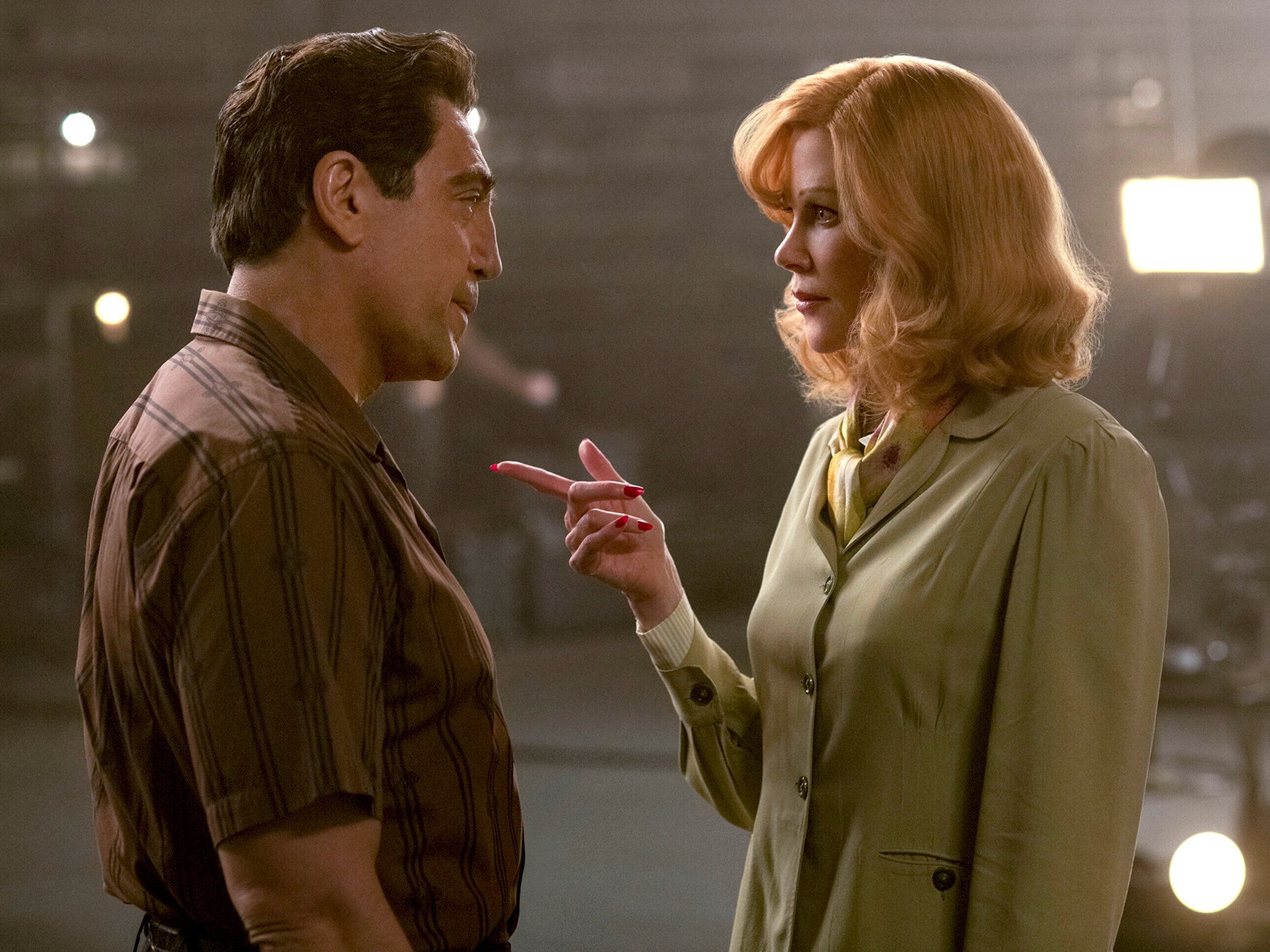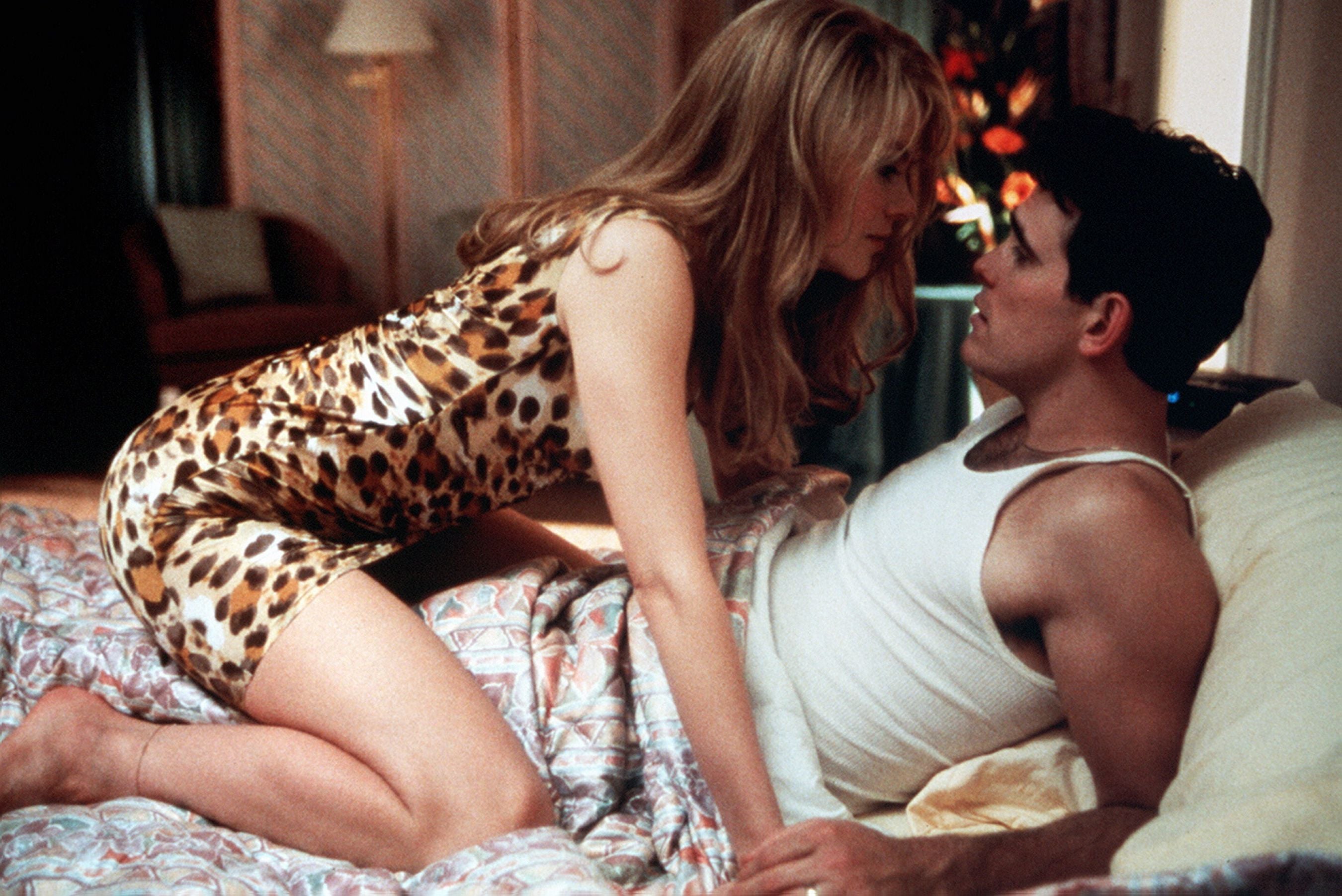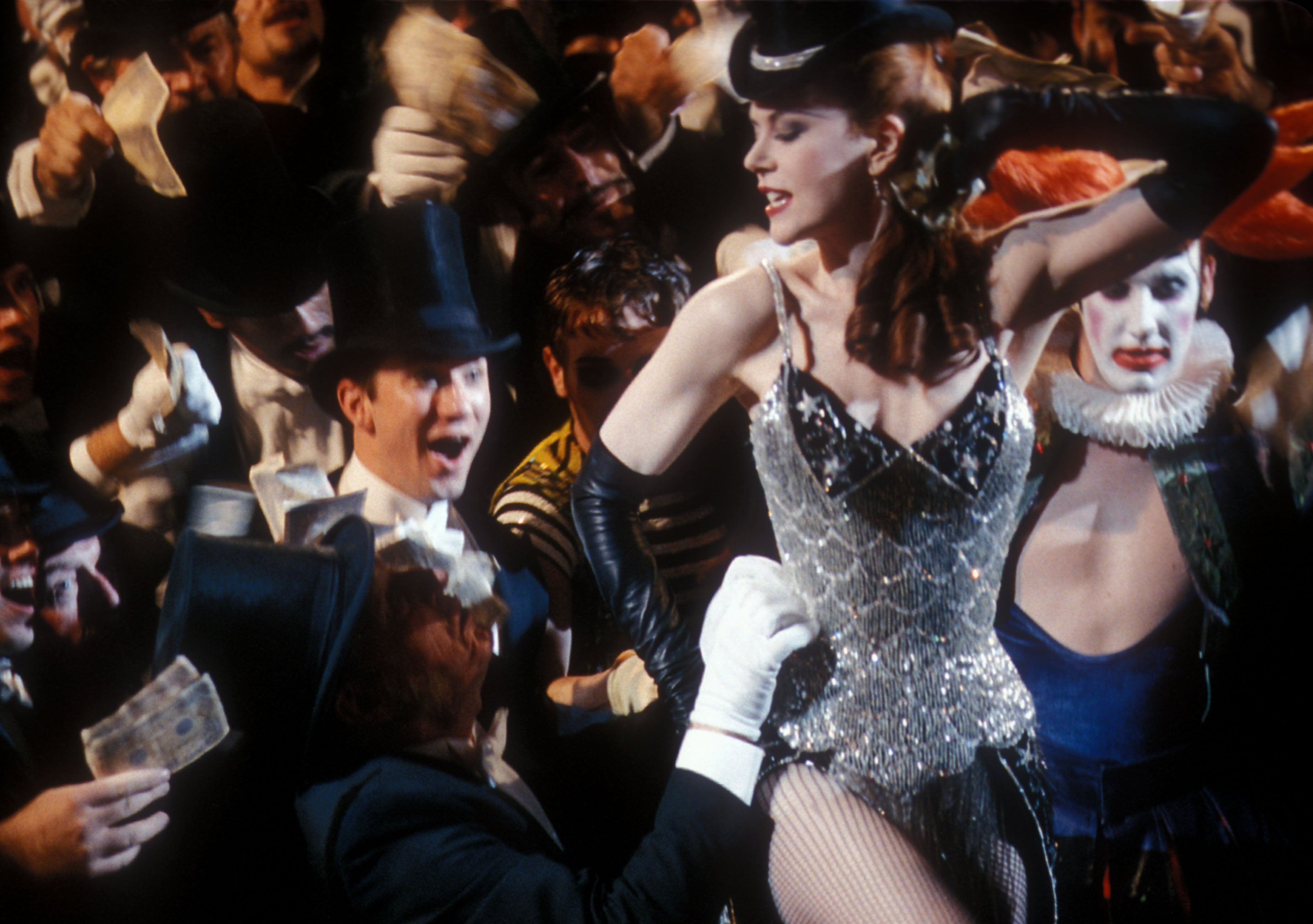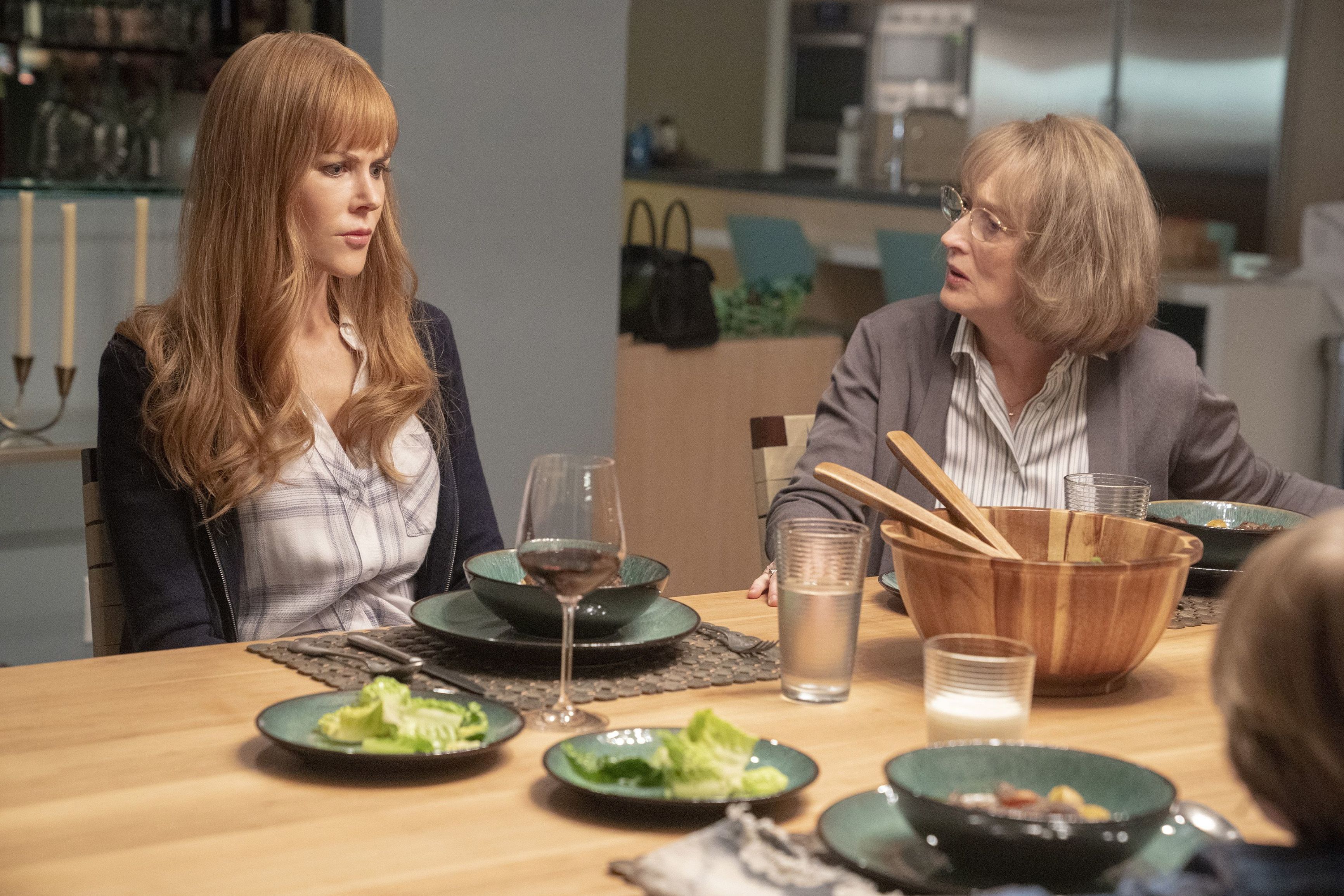Nicole Kidman: ‘I’m not on the internet and I definitely don’t Google myself’
The actor, who stars in Aaron Sorkin’s comedy-drama ‘Being the Ricardos’ as the ‘I Love Lucy’ star Lucille Ball, tells David Itzkoff that she had scant confidence in her comedic abilities, but found more connection than she expected to Ball

Your support helps us to tell the story
From reproductive rights to climate change to Big Tech, The Independent is on the ground when the story is developing. Whether it's investigating the financials of Elon Musk's pro-Trump PAC or producing our latest documentary, 'The A Word', which shines a light on the American women fighting for reproductive rights, we know how important it is to parse out the facts from the messaging.
At such a critical moment in US history, we need reporters on the ground. Your donation allows us to keep sending journalists to speak to both sides of the story.
The Independent is trusted by Americans across the entire political spectrum. And unlike many other quality news outlets, we choose not to lock Americans out of our reporting and analysis with paywalls. We believe quality journalism should be available to everyone, paid for by those who can afford it.
Your support makes all the difference.There are valuable lessons Nicole Kidman learns each time she plays a real-life figure: how that person was misapprehended by society at the time. How that era of history is more like the present day than she realised. And, crucially, how to maintain her balance while traipsing barefoot through a vat of grapes.
Recounting her preparations to play Lucille Ball, the star of I Love Lucy, Kidman suggests that her methodical efforts to learn Ball’s enduring 1956 grape-stomping routine were not fully sufficient when it came time to re-enact it on camera.
“I had only practiced on a floor,” Kidman says with a gentle earnestness. “The one thing I didn’t count on was that there were going to be real grapes. They’re actually really slippery, just so you know.”
In Being the Ricardos, a comedy-drama written and directed by Aaron Sorkin, Kidman plays Ball in a story spanning a week at I Love Lucy, where she and her husband Desi Arnaz (Javier Bardem) fight to incorporate Ball’s pregnancy into the series, fend off accusations that Ball is a communist, and arrive at a fateful point in their marriage.
The movie, which is on Amazon Prime, includes some recreations of famous I Love Lucy scenes. But it is ultimately a story of discovery, for the TV star and for the woman playing her.
Kidman, 54, is an Academy Award and Emmy Award-winning actress, and she is once again a contender for year-end accolades for her performance in Being the Ricardos. But she tends to second-guess herself and says she had scant confidence in her comedic abilities.
Through her approach to Being the Ricardos, Kidman has found more connection than she expected to Ball, another actress who was pigeonholed and underestimated in her day. Their life stories and talents may not fully overlap, but they both understood the necessity of humour to fulfil their individual goals.
As Kidman says, “I’ve got to be funny, and funny’s hard.”
On a visit to New York last month, before the Omicron surge, Kidman is sitting in a downstairs lounge at a Manhattan boutique hotel, her fingers ornamented with intricate rings as she sips a ginger shot.
Kidman says I Love Lucy reruns were a hazy background element from her childhood, and that she leaned towards shows like Bewitched and The Brady Bunch.
She can point to the occasional comic performance on her resume, in a dark satire like To Die For or a family film like Paddington, although she has to be reminded that there is some physical clowning in Moulin Rouge, too. “There was, that’s right!” she says. Even on a somewhat sardonic series like HBO’s Big Little Lies, Kidman says, “It’s Reese Witherspoon and Laura Dern who are very funny. I just say to them, I’ll be your straight woman.”
She has no illusions that she was the most logical candidate for the role of Ball or even the first actress sought to play her.

At its inception several years ago, Being the Ricardos was contemplated as a TV miniseries, according to Lucie Arnaz, the actress and daughter of Ball and Desi Arnaz, and an executive producer on the movie.
Cate Blanchett was attached, but by the time Sorkin became involved and the project was set up at Amazon as a film, the actress was no longer available.
“It just took too long and we lost her,” Arnaz says. “I was devastated.” A press representative for Blanchett declined to comment.
As other stars were contemplated, Arnaz says, “None of them made me happy. It was always like, who’s the flavour of the month? Who’s got the hot movie of the minute?”
But when Kidman emerged as a possibility, Arnaz says, she was intrigued.
“I thought that’s good; we should only be looking at Australian actresses for this,” she jokes.
Kidman said Blanchett’s previous involvement did not diminish her interest. In show business, Kidman says, “I feel like there’s a sacred pact among us all: whoever gets something, that’s where it was meant to land.”

She was aware of a backlash online from fans who opposed her casting, some of whom wanted the role to go to Will & Grace star Debra Messing.
“I’m not on the internet and I definitely don’t google myself,” Kidman says. “But things trickle through.”
Arnaz says Messing “just wants to be that person so bad”, but added, “We weren’t doing that. We weren’t trying to be that person.” A press representative for Messing declined to comment.
Kidman was not deeply versed in Ball’s life when she was first approached, but she could imagine the freedom in portraying that slapstick queen: “The way she moves and falls, every part of her physicality, you go, ‘oh, I can be an absolute doofus playing her.’”
Still, after signing on to Being the Ricardos with some gusto, Kidman says she began to get cold feet. Her reluctance, she says, was partly about the pace of Sorkin’s dialogue-dense screenplay and partly about making the movie during the pandemic.
But on a fundamental level, Kidman says comedies do not come easily to her – not as a genre and not as acting opportunities.
“I don’t get cast in them,” she says. That might be the result of a career spent in dramas, or, “it might be my personality, too”.
Reflecting on her upbringing in Australia, Kidman says, “I was the kid that was not allowed to go on the beach during the middle of the day because I was so fair and I was going to burn. So I would sit in a room and I wouldn’t watch TV. I’d read.” A youth spent with Dostoyevsky, Flaubert and Tolstoy “doesn’t necessarily make you a comedian”, she says.
If she’s going to take on a role with any comic qualities now, Kidman says, “I need to be pushed and cheerleaded in that area.”

Sorkin was persuasive, Kidman says, and she was buoyed by past experiences landing a funny line in stage plays here and there.
“It’s pretty wow when you say something and a whole theatre laughs,” she says. “I can understand getting addicted to that.”
What the film really required, Kidman says, was for her to play Ball, as depicted in Sorkin’s script, and not Lucy Ricardo.
“Lucy’s a character – that’s not Lucille,” she explains. “Lucille is extraordinary because she was knocked down, got back up and just doggedly kept at things.”
The more she reflected on the screenplay and learned about Ball’s life, Kidman says, the more she saw a multifaceted person who gave her many emotions to play.
In Ball’s marriage to the philandering, alcoholic Arnaz, Kidman says, “She loved a person who loved her but couldn’t give her what she wanted most.” Pointing to the fizzled film career that eventually led Ball to I Love Lucy, she says, “She was really funny but she wanted to be a movie star.”
Kidman stopped short of drawing direct parallels between Ball’s life and her own, but Arnaz wholeheartedly embraced the comparisons.
Arnaz says that like her mother, Kidman “had been married before. She understood divorce and trying to raise your children in the spotlight. She understood a husband who had an addiction problem”. Kidman’s husband, singer Keith Urban, has been treated in the past for drug and alcohol abuse.
Kidman threw herself into the physical preparations for the role and worked closely with a dialect coach, Thom Jones, to develop the voices she would use for Ball and Ricardo.
As Jones explains, “Lucy is Lucille extreme. When Lucille played Lucy, she did a broad, exaggerated version of herself and pitched her voice higher.”
Ball’s natural speaking voice was deeper and huskier from years of smoking, although Kidman was not necessarily striving for perfect mimicry.
“We wanted her to grab at the essence of Lucille and get that across,” Jones says. “If you’re doing an impersonation, you’re going to be too aware of your outside and not be able to fill your inside as an actor.”
Kidman ran lines with her mother, a lifelong “Lucy” fan, although it’s not clear how helpful this was to her overall process.
“She’d say, ‘You got this word wrong,’ and I’d go, ‘Mum, just let me get to the end of the sentence before you correct me.’ Rule No 1, don’t learn lines with your mum.”
She also studied personal audio recordings that Arnaz shared with her, and worked with a movement coach while learning to duplicate several I Love Lucy routines, although only a handful appear in the film.

Kidman has already received nominations for several honours, including a Golden Globe and a Critics Choice Award, for Being the Ricardos, but her performance remains an occasional source of insecurity for her.
She seems surprised to be told about an October teaser trailer for the film that only fleetingly showed her face in a span of about 75 seconds, and that prompted some viewers to ask why Amazon appeared to be hiding Kidman.
Asked if she was aware of the teaser or the strategy behind it, Kidman says, “I don’t know how to answer that, you know? I don’t handle the promotional part of it. Maybe they were just scared of showing me.”
She draws a breath before adding, “Bummer.”
Whatever other awards she receives for Being the Ricardos, Kidman will always have the experience of standing on a facsimile of the I Love Lucy set, performing Ball’s material from the show and hearing the laughter of scores of extras hired to play the show’s studio audience.
Kidman offers a single word to describe how she felt in that moment: “Fantastic.” Then, as if to demonstrate some of the skills she’d picked up on the film, she waits a beat and says: “They were made to laugh, by the way.”
© New York Times
‘Being the Ricardos’ is on Amazon Prime



Join our commenting forum
Join thought-provoking conversations, follow other Independent readers and see their replies
Comments